Homicides fall for first time in five years across UK despite London rise
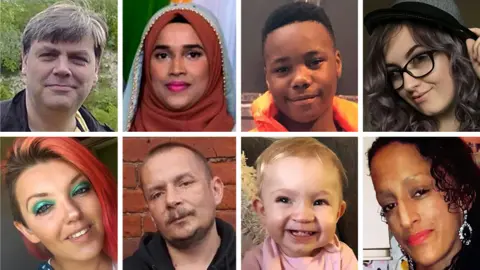 BBC
BBCThe number of people killed across the UK fell in 2019 for the first time in five years, BBC research suggests.
In total, 650 people were killed in England, Wales, Scotland and Northern Ireland last year - down from the 774 homicides in 2018, police figures show.
Despite the drop, homicides in London rose for a third successive calendar year - to the highest level since 2008.
It comes a week after the home secretary gave 18 police forces £35m to combat violence.
Throughout 2019, the BBC recorded details of murder and manslaughter investigations launched by the 46 UK police forces.
Homicide figures fell for 26 of those forces while five recorded the same figure as in 2018.
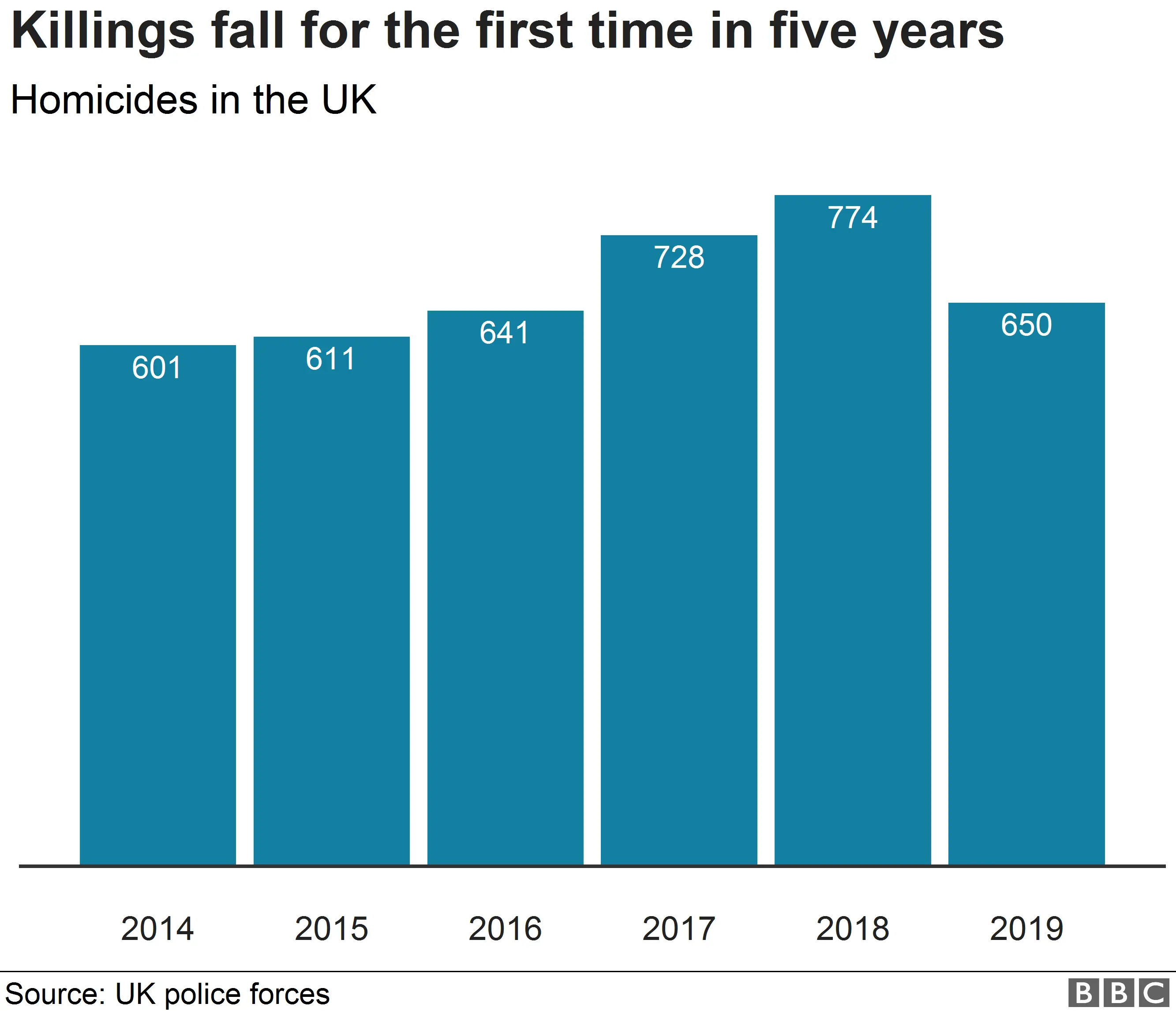

In London - one of the areas to see a notable increase and where the number of killings was highest - the Metropolitan Police launched 149 homicide investigations.
The British Transport Police led three murder investigations on the London Underground network and Jack Merritt and Saskia Jones were both stabbed to death in the City of London on 29 November.
Can't see the map? Tap or click here
It meant the overall figure for London for 2019 rose to its highest level since 2008, when there were 154 killings.
The Met Police said tackling violence remained a top priority, adding that it had anti-knife crime plans specific to boroughs and aimed to have more than 32,000 officers by summer 2020 - which would represent a 7% increase on the 29,924 officers the Met had in April 2018.
Commander Jane Connors said: "We know that drug dealing is inextricably linked with a high proportion of the violence seen on our streets.
"Therefore, we will continue to target those who, for the sole purpose of financial gain, exploit children and target the most vulnerable within our communities.
"However, the causes of violence are complex and police cannot solve it alone.
"Solutions will require a holistic and sustainable approach that will involve a range of action from government, education, health, social services, housing, youth services and the public."
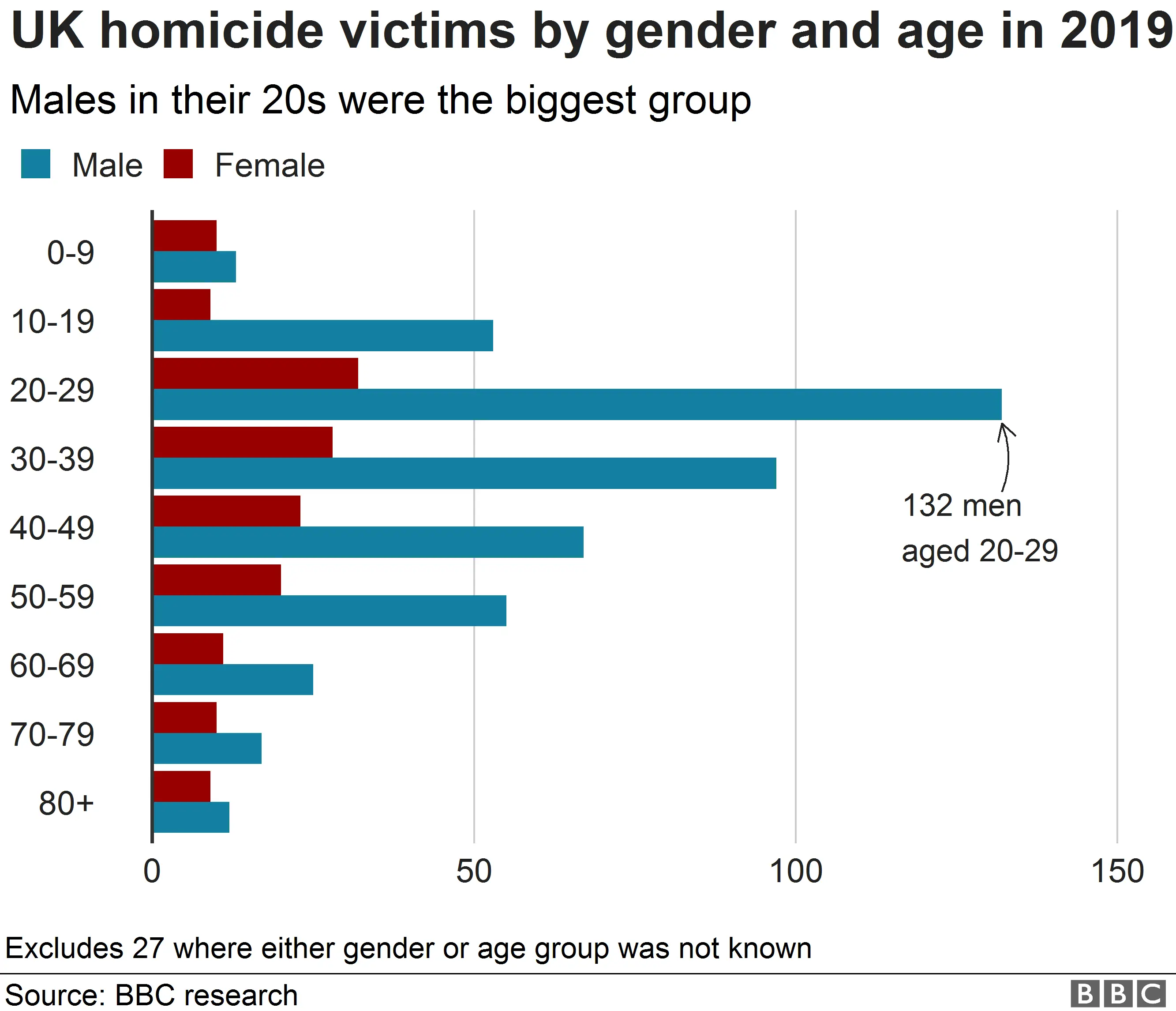
According to BBC research, the majority of UK police forces saw a fall in homicides compared with 2018.
West Midlands Police said the number fell from 51 in 2018 to 39 last year; while homicides in Greater Manchester were down from 64 to 39.
In Merseyside the homicide level halved, down from 21 to 10, while West Yorkshire Police launched 21 homicide investigations in 2019 compared with 39 in 2018.
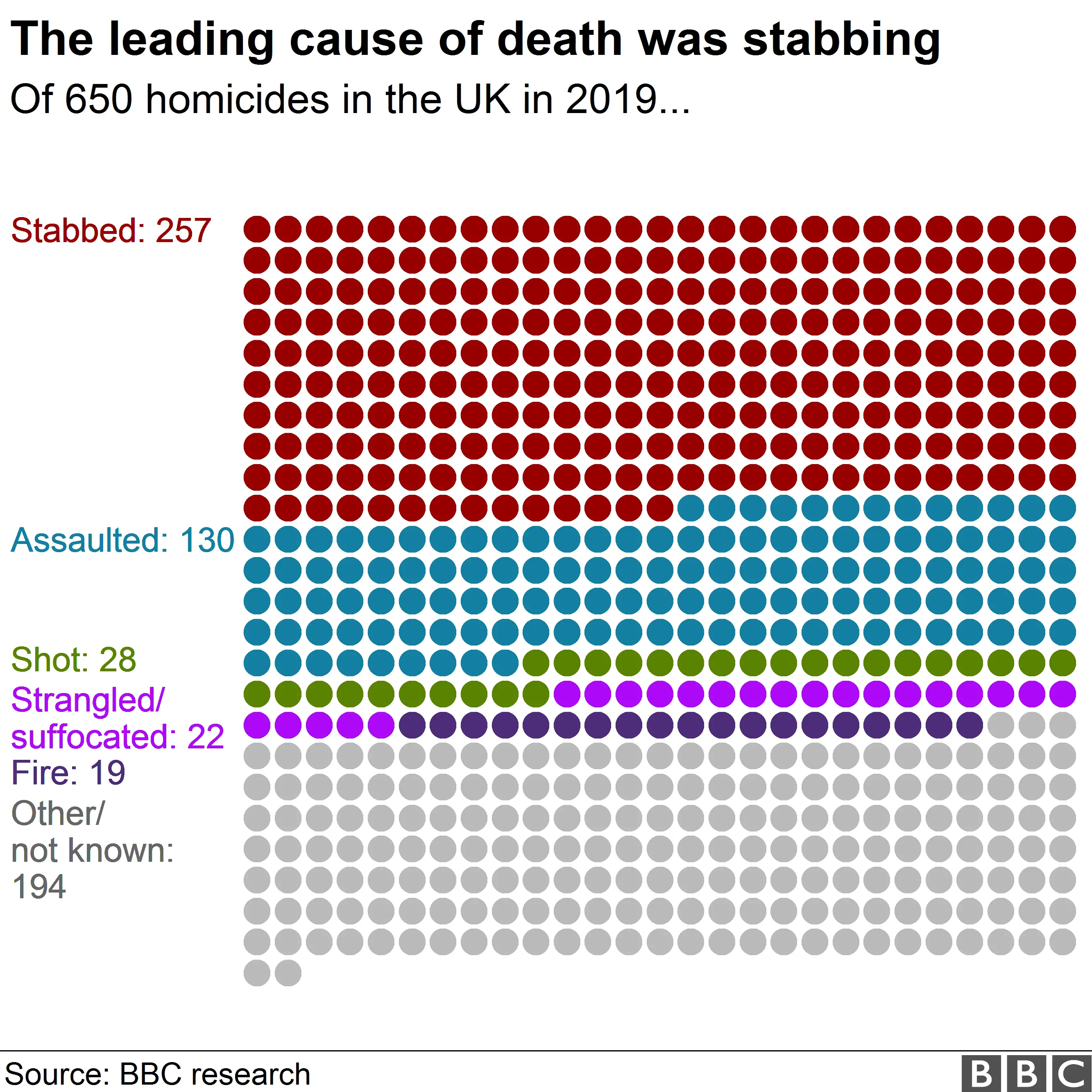
Merseyside Police's Assistant Chief Constable Ian Critchley said this was down to a "relentless suppression" of serious organised crime and also reducing the number of domestic violence killings.
"At the other end, it is about stopping young people getting into crime in the first place," he said.
"We will target relentlessly people who feel they can control what is taking place in order to obtain money and use bullying, cowardly tactics to groom young people to carry knives and firearms."
Elsewhere in England, Essex saw a notable increase from 13 homicides in 2018 to 54 homicides last year - but the figure does include the 39 Vietnamese nationals which were found in the back of a lorry in Grays in October.
West Mercia, Devon and Cornwall, Sussex and Cheshire police forces all saw drops in homicides recorded in 2019 compared to the previous 12 months.
South Wales Police, the largest force in Wales, saw a rise in homicides from ten in 2018 to 14 in 2019.
Det Ch Supt Jason Davies said it was the force's "priority to ensure perpetrators are apprehended quickly".
He added: "In relation to all 14 homicide investigations conducted in 2019, a total of 22 individuals have either been arrested, charged or convicted."
On 29 December, the Home Office announced an additional £35m for various so-called violence reduction units (VRU) to 18 police forces in England and Wales.
Home Secretary Pritti Patel said the VRUs "played a vital role in diverting young people away from crime".
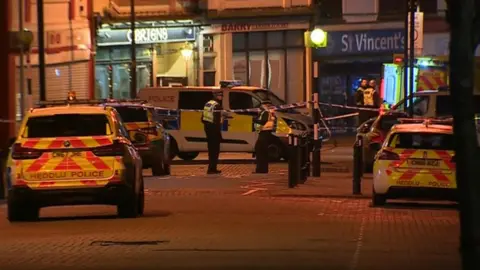
Police Scotland, which provided figures for the year ending March 2019, said homicides were down 11% on the year before.
Northern Ireland saw 26 homicides - two more than 2018 - and PSNI's Det Supt Jason Murphy explained that many homicides in Northern Ireland were "complex" and had varied factors compared with other UK regions.
Det Supt Murphy, who is leading the murder investigation into the fatal shooting of journalist Lyra McKee, said Northern Ireland had far more "terrorist-related" homicides than the rest of UK - but also fewer killings linked to county lines and organised crime.
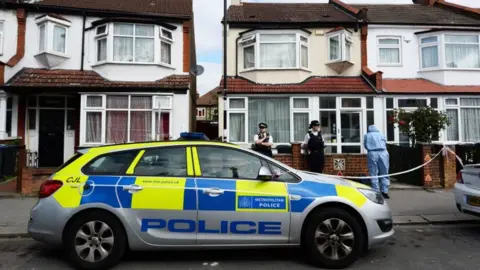 PA Media
PA MediaIn March three teenagers were crushed to death at a St Patrick's Day party at a hotel in Cookstown, County Tyrone, in December a man was charged with the murder of two people who were found dead in a flat in Belfast and in 2019 three cases were linked to paramilitaries.
The detection rate was above 80%, Det Supt Murphy added.
A Home Office spokesman said: "We are establishing a Royal Commission to ensure a fair justice system that works for the law-abiding majority and will strengthen protections for domestic abuse victims.
"We are also giving the police more powers to take dangerous weapons off our streets and are investing in early intervention projects and Violence Reduction Units to tackle the root causes of crime."


About these figures
Information was supplied by police forces in England, Wales, Scotland and Northern Ireland.
The list is comprised of manslaughter, murders and infanticides. These causes of death are categorised as homicides by the Office of National Statistics.
Figures are correct as of 8 January 2020 but may change as investigations progress and charges are brought or dropped.
Map and charts by Daniel Wainwright and Wesley Stephenson
